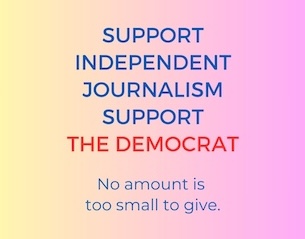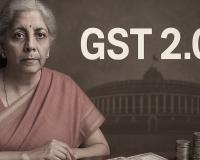- Editorial
- The Pegasus Effect: Where Does Indian Democracy Go from Here?
The Pegasus Effect: Where Does Indian Democracy Go from Here?
The Pegasus Effect: Where Does Indian Democracy Go from Here?

By Prof Ujjwal K Chowdhury
The Pegasus spyware case targeting to infect smartphones of around 3000 well known Indians from politics, judiciary, media, bureaucrats and constitutional authorities, is well known by now. Question is what it means for the Indian democracy, politics, business and life ahead. I see five possible effects of the NSO-Pegasus crisis.
Government & BJP’s Wobbling Reactions
First, the government is on back-foot and even the loyal section of media is finding it hard to justify it. This crisis is going to be a major challenge of the ruling BJP, coming after several other setbacks like the COVID second surge, major fall in the economy and the electoral defeat in Bengal.
It is interesting to see the chronology of reactions from the end of the ruling party and its government. First the reaction was an ignorance of Pegasus and NSO of Israel. It moved to ‘no unauthorized use’ of the Pegasus software (which is actually sold only to governments and at the approximate cost of Rs.1 crore per smartphone hacked). Then the discussion moved to ‘authorized use’ in national interests with standard operating processes. Then the question raised was that even other national governments use it, so why pick up India alone (Indians will naturally be bothered about their government first). Then, some voices eventually accepted that it was used but not for surveillance. Attempts were made to divert attention to well-known phone-tapping cases during Congress times, which were also never a democratic practice. There were arguments in the social media from the right wing biggies that Indians had raised no objection when Google and Facebook captured all personal data, then why a ruckus now. They obviously ignore the fact that this is government funded project of a foreign tech company to use software to spy on personal interactions, chats, emails, track movements of selected people and see what their camera shows. This is far more serious than personal data used by a tech major to push advertisements, where the buying decision still lies with the consumer. The right wing has also been desperately latching on to the sex video case involving Raj Kundra to divert attention.
Opposition Coming Closer
Second, the way Shashi Tharoor led multi-party Parliamentary Committee has taken this up for probing, come July 28, along with the entire opposition protesting vociferously in both houses of the Parliament, it is clear that this is not going to vanish tamely. The issue has the capacity to bring the disparate forces in the opposition closer and unite them better contesting the government on its follies. The second part of July till mid-August, this probe and the opposition noise within and beyond Parliament are expected to raise the public awareness against this spyware scandal contributing to political isolation of the ruling party even from its allies and some within their own circles. Several leaders of the ruling party themselves and those of their allies have been spied on. The spied data along with the lethal use of central forces like CBI, ED, et al can be a major cause of concern for any political leader within and beyond the ruling party.
Possible Re-emergence of ‘EVM Hatao’ Movement
Third, the hacking of smartphones shows that the hacking of EVM is all the more possible, and hence the demand for ballot paper based elections should and will be stronger in the days to come. Most Western democracies, like Germany, UK, US, Sweden, etc, have returned to ballot paper based elections after brief interlude with electronic voting machines. The repeated cases of faulty EVM machines found around the country in the last half a decade almost in all cases have been seen voting for the lotus (symbol of BJP) whichever symbol you press. Plus that the hacking of remote EVMs is technologically possible has also been demonstrated. A full large contingent of faulty EVMs has been misplaced from Gujarat some years back. Today, the remote hacking of smartphones, along with encrypted WhatsApp messages, makes it clear that any electronic circuit can be remotely hacked, including EVMs. An all-out united opposition movement is expected ahead to take this forcefully ahead.
Civil Society Resentment
Fourth, the civil society, more particularly the socio-political and intellectual elite, is highly agitated. A section of the business elite is paranoid seeing that nothing is private anymore in any human interaction. The BJP IT Cell has been aggressively put to dig and share stories of phone-tapping during Congress days. The other angle it is peddling now is that the ‘colonial Western corporate powers’ like Facebook, Google et al are anyway getting all citizens’ personal data, and that Adhaar details are used by many agencies. These are attempts being done to blunt the public anger against the Pegasus Project. However, well placed political and business elites do understand the implications of all their chats, movements, meets, emails getting exposed to government snooping. There cannot be any confidentiality of any business or privacy of any human interaction going ahead then. Surveillance State phenomenon we see in China, Russia, North Korea, is becoming real even in India. India Against Surveillance movement against this on the lines of India Against Corruption movement by the civil society that unseated the UPA government is a probable case ahead, though the government will use the COVID protocols and restrictions thereby to quell such an agitation. It is important to see how the civil society reaction shapes up ahead.
Further Surveillance Attempts Versus Judiciary
Fifth, there is also the dual possibility ahead: one, of surveillance coming to stay as a state policy in India, a la China and Russia, and second, a possible upsurge against it as well since India is not a full fascist system yet. There has been spying in the past as well, the most infamous one being on Netaji Subhas Chandra’s family, and much later during Indira Gandhi’s emergency too. However, the difference now is that the state is funding spying of constitutional, political and media stalwarts through the use of technology by a foreign company, and that is a major threat to national security. The propensity to resort to such spyware use against political or business adversaries will remain in future too. Worse is the fact that such hackers can infest the hacked smart-phones with malware and anti-national content which can lead to terror allegations against the owners of the smartphones. But the frequency and scale of resorting to the same will depend on how the opposition and the people protest this time and what does that lead to. The matter shall obviously go to the Court soon, as has been demanded by Editors’ Guild already. Since legal luminaries were also spied against, it will be interesting to see how the Supreme Court with upright judges like Chief Justice N V Ramana and Justice D Y Chandrachud act upon this.
The author is a regular contributor, television debate panelist and an academician working as a Pro Vice Chancellor with a Kolkata based University. 000













